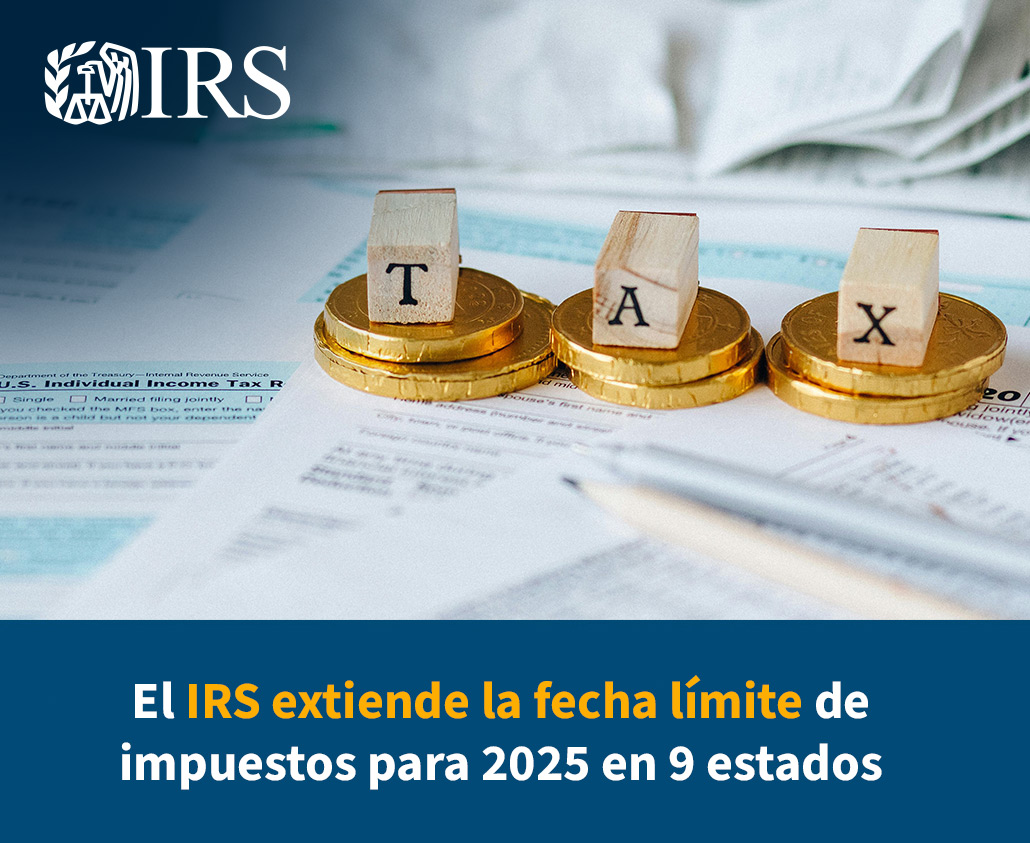IRS Extends 2025 Tax Deadline for 9 States: What You Need to Know

If you live in Florida or any of the eight other states recently affected by natural disasters, it’s crucial to know that the Internal Revenue Service (IRS) has extended the 2024 tax filing deadline to August 15, 2025. This extension offers significant relief to thousands of taxpayers—many of them from immigrant communities—by providing more time to file tax returns and make payments without facing penalties or interest.
📌 Why Was the Deadline Extended?
The IRS made this decision in response to severe natural disasters, including storms, tornadoes, and flooding, that have disrupted daily life and business operations in several states. These events have made it difficult or impossible for many residents to meet the original tax deadline of April 15, 2025.
📍 Which States Are Included?
So far, the IRS has granted this extension to affected areas in the following states:
- Florida
- California
- Tennessee
- West Virginia
- Georgia
- Rhode Island
- Connecticut
- Maine
- Michigan
It’s important to note that the extension does not apply automatically to all residents of these states. It only applies to those living or operating businesses in areas federally declared as disaster zones by FEMA. Be sure to check whether your specific county or location qualifies.
🧾 What’s Covered by the Extension?
Eligible taxpayers will have additional time to file:
Eligible taxpayers will have additional time to file:
- Federal individual income tax returns
- Business tax returns
- Quarterly estimated tax payments
- Payroll and excise tax returns
Additionally, if you’ve already filed your return but were unable to make your payment due to the disaster, no penalties or interest will be charged during the extended period—provided you pay in full by the new deadline.
🔍 How Do You Know if You Qualify?
The IRS uses previously filed tax return information to automatically identify affected taxpayers. However, if you’ve recently moved or your information isn’t up to date, you should contact the IRS directly or visit the disaster relief section on their official website: irs.gov/disaster.
If you’re self-employed or run a small business, it’s especially important to seek professional guidance to ensure you’re using this extension properly and avoiding any mistakes.
🎯 Why Is This Important for Immigrant Communities?
Many immigrant families face unique challenges when it comes to navigating the U.S. tax system—language barriers, lack of access to accurate information, or uncertainty about their rights and responsibilities. This extension is not just a lifeline—it’s also a reminder of the importance of financial organization and compliance. Take advantage of this opportunity to get caught up and avoid future penalties.
✅ Final Recommendations:
- Check if your area is covered under a federal disaster declaration.
- Don’t ignore your taxes—use this time to prepare wisely.
- Seek professional tax advice if you have doubts or special circumstances.
- Keep records of how the disaster impacted your home or business.
- Stay informed through official channels like the IRS and FEMA websites.
📚 Conclusion:
This IRS extension isn’t just about having more time—it’s a chance to reset and regain control of your financial responsibilities. If you’re part of the immigrant community in the United States, this may be the ideal moment to review your records, update your status, and plan with clarity and peace of mind.
📎 Sources:
The information presented in this article is based on official announcements from the Internal Revenue Service (IRS) and news coverage from trusted outlets such as MSN Money y NBC News, highlighting disaster-related tax relief and its implications for affected states. For personalized updates and eligibility verification, we encourage you to consult the IRS’s official website or speak with a qualified tax professional.








